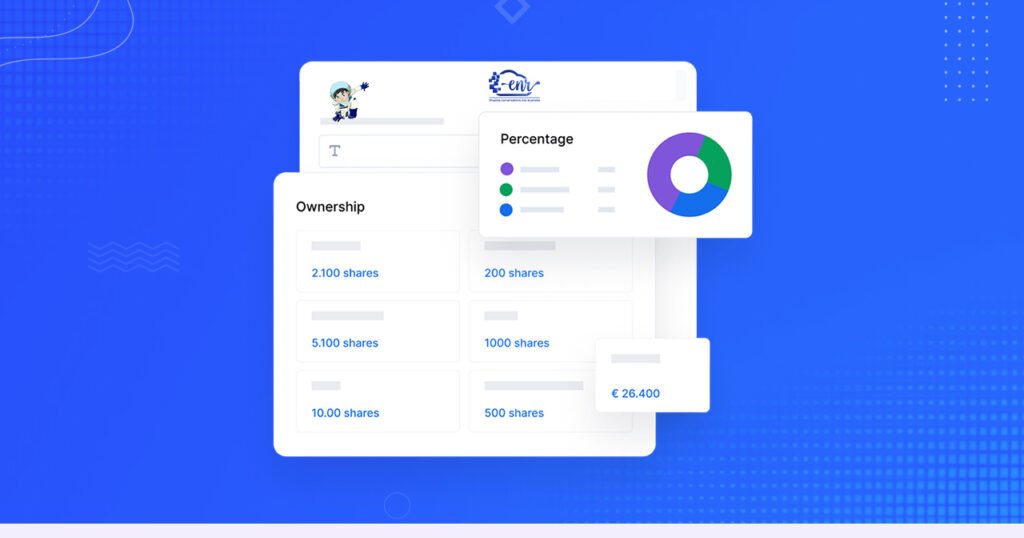Introduction
“Equity is the currency of the tech and startup worlds”
In the fast-expanding startup ecosystem, equity and valuation have become two critical components. The success of a startup ecosystem relies mostly on wealth creation and value generation. Unlike other businesses, startups come under stricter scrutiny from investors and employees. The startup ecosystem and how they are distributing equity is an important marker for entrepreneurs, founders, investors, and stakeholders to build a successful business. It indicates the company’s potential for growth.
For every entrepreneur, understanding equity and valuation is crucial because it directly impacts the equity distribution and how you can project the startup to the potential investors. For a startup ecosystem, the valuation is not just about numbers, it can be a stepping stone to innovation and scalability and building trust and credibility. In the paragraphs below, we will talk about:
- What is equity in a startup ecosystem?
- How is it distributed?
- What is Startup valuation?
- How is it calculated, what are the factors influencing it and challenges.
- Importance of startup and equity together in a startup ecosystem
The grasp of this simple concept will enable the founder and the team get a better control over their business.
Equity in a Startup Ecosystem

Equity represents the amount of ownership in a company. For a startup, it is the slice of ownership in the company, typically in the form of shares, which are distributed among founders, investors (in exchange for funding), and employees as a benefit. Equity in exchange for funding is a common way to secure capital for a business.
Usually in the beginning, the startup owner has 100% share, but as the business grows and a stronger team needs to be built, the owner might want to share the ownership to build a stronger community.
How does a Startup Calculate Equity?

It is important that the equity calculations be made clear at the beginning of the distribution itself.
Percentage of ownership = Number of shares that you own/total number of shares outstanding
This gives the investor and the employees a clear picture of their stake in the company and how their equity is growing as the company grows.
Types of Equity Holders
- Founders: These are the owners who created the startup and own 100% or the majority of equity initially.
- Investors: This broad category covers angel investors, venture capitalists, stakeholders, and other investors who get a part of ownership in the company in exchange for funding.
- Employees: Often in the startup ecosystem, employees are given stock options to attract and retain talent.
- Mentors: These are the external experts who get equity in exchange for guidance and mentorship.
How is Equity Distributed in Startup Ecosystem?
(1.) Initial Equity
This is usually split among the founders, and the share can be decided on the basis of skillset, experience, and capital they bring to the venture. Future roles and responsibilities are also taken into account. For example, one founder might get 60/40 equity because of his expertise.
(2.) Equity Dilution
This is one of the top most consideration in startup valuation: equity and valuation for investors. In simple words, dilution is the share in your space. When the startup gets funding, it needs to share some shares. As the number of investors increases, the ownership stake reduces. For example, A seed round might result in 20% equity to investors, and the founders will be left with only 80% share in the company.
(3.) Employee Stok Option Plan (ESOP):
This is an attractive option to boost employee loyalty and increase a sense of belonging. When the employees have equity and valuation they tend to stay with the company and help it grow.
Valuation in Startup Ecosystem

A startup’s equity and valuation is the process of determining the estimated worth of the company. It indicates both the current worth and potential value of a company. Market conditions, revenue, and the growth potential of the startup are influencing factors on valuation.
Valuation becomes very important in the startup ecosystem because startups don’t have a long financial history. They lack profits or assets or other metrics like cashflow, EBITDA, revenue, etc. to represent their value, hence, valuation is based on future potential and a comparison to similar ventures.
The valuation of a startup is affected by many factors such as the market size and potential, business model, revenue, and financial health, burn rates, traction and growth, experience of the founding team and its strengths, innovation, and intellectual properties such as the product.
Types of Valuate for the Startup Ecosystem
Valuations are speculative in nature because of lack of history, innovative ideas, and market opportunities that the startup will or might gate.
- Pre-money valuation: Value before raising capital or funds.
- Post-money valuation: The equity and valuation of startup after the fund is added.
Methods Of Startup Valuation
- Comparable market valuation where investors use similar companies in the same stage of growth in the startup ecosystem as benchmark to evaluate.
- Scorecard valuation is a type of weighted scoring system which compares the startup against the benchmark to evaluate the startup’s worth. These benchmarks can be team strength, market size, product USP, operating metrics, etc.
- Venture Capital (VC) method relies on expected future valuation at the time of liquidity and then discounting it back to the present and estimate the startup’s current equity and valuation. It is calculated as
Pre-Money Valuation= Exit Value / (1+Expected ROI)n
- Revenue multiple method is the simple multiple of its annual revenue.
- Cost-to-duplicate approach computes the valuation from the cost incurred to build it from scratch. However, it does not take into account the brand value, growth potential, and competitive advantage the business would have built.
- Discounted cash flow calculation projects the cash flow in future and discounts them to a present value.
Why are Valuation and Equity important in Startup Ecosystem
The startup valuation provides many invaluable insights for equity offers for the business:
- Raising Investments and Investment Decisions: Since the investors get a clear picture of the startup’s future and current worth. It helps them predict the growth of their equity and valuation. Investors want to pay the lowest and get the highest return or equity, and founders want the opposite. A high valuation means that founders will give up less equity, and a lower valuation means that the investor can take a large ownership stake.
- Acquisition and Exit Strategies: In the startup ecosystem, equity and valuation become important in case of mergers, acquisitions, secondary sales, or IPOs. The purchase price is the valuation. This becomes crucial for founders and investors to maintain a balance in equity distribution. Founders and employees who have equity will want to maximize this exit valuation.
- Fundings or Raising Investments: Valuations determine how much equity a startup should offer in exchange for investment capital.
- Benchmarking Progress: Regular valuations can be a good growth tracker for the startups and impacts the equity directly.
- Strategic and Future Planning: Regular valuations influence financial planning, scaling decisions, resource allocation, growth, and other strategic decisions and help the founders plan for growth opportunities to meet the business goals.
- Attracting Top Talent and Advisors: A good valuation means the startup can offer good equity or stock options to employees, and it builds creditability for the talent in the startup ecosystem.
Conclusion:
Equity is the ownership in a startup, and as the startup grows, valuation determines how much equity can be given to the investors and employees. Understanding the concept of equity and valuation in a startup ecosystem will help in determining the investment opportunities, exit strategies, and strategic planning for the investors, and from the business side, they are a key metric for fundraising, and ownership control for long-term success. By using the right valuation methods and structuring the equity distribution tactically, a startup can maximize growth and still retain control over their vision.
Read Also: What is Crowd Funding – A Complete Guide






